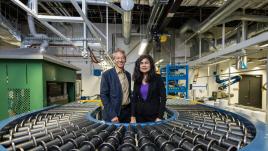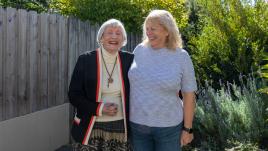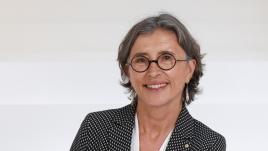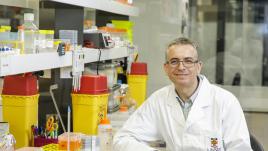Learning with LEGO: The Fair Play Project
What if more opportunities for play could address educational disadvantage among Australian children? A world-leading new project by the Gonski Institute for Education and LEGO Education Australia aims to find out.
For children, play isn’t just fun and games – it’s also an integral part of their development. International research has found links between play and emotional, social, physical and cognitive growth. Furthermore, according to global business leaders, the most sought-after skills in the workplaces of the future will be creativity, problem solving and coordinating with others.
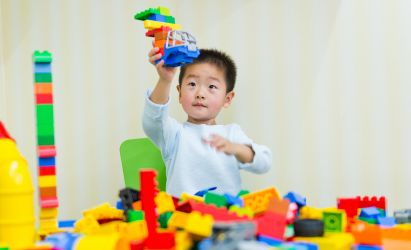
Play is so important that the United Nations High Commission for Human Rights recognises it as a right of every child. The team behind a new UNSW research project believes that play could have an even greater benefit: more equitable educational outcomes for children of different socioeconomic status.
Fair Play, a project headed up by the Gonski Institute for Education (GIE) at UNSW, aims to find out how children from different equity groups benefit from more opportunities for play during school. The GIE has partnered with LEGO Education Australia and donors Frances Allan and Ian Narev to look at the impacts of both unstructured and structured play on students’ learning, engagement and aspirations. Together, they have launched the Fair Play project.
Harnessing the potential of play
The Australian education system faces increasing pressure to deliver conventional, structured education underpinned by academic subjects rather than real-life experiences. This focus often comes at the expense of non-academic activities, such as play. But what is the true cost of removing play from the classroom?
Research has shown that children from disadvantaged backgrounds participate and engage less with traditional classroom activities, especially in mathematics and science. We also know that children from these backgrounds tend to have fewer opportunities for play. Our GIE research team believes that by incorporating play into the classroom, schools can help these children be more engaged in school, develop key skills and give them the tools to thrive.
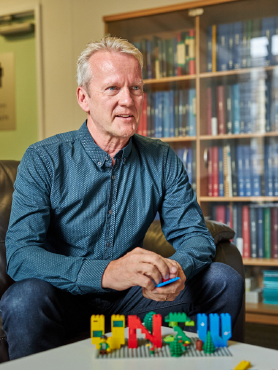
Gonski Institute for Education
heads up the Fair Play project
Professor Pasi Sahlberg, lead academic for Fair Play, is a Professor of Educational Policy at UNSW School of Education, Deputy-Director Research with GIE and former Director General in Finland’s Ministry of Education. During his tenure in Finland, Professor Sahlberg was credited with transforming the country’s education system into a world leader. He says that understanding the true potential and value of play could yield huge benefits at a relatively low cost.
“Play has much more power than many of those conventional things that we have tried in education for many years … technology, apps and now artificial intelligence. I think play can do much more than those, and much faster and certainly cheaper. We have tried all kinds of teaching methods in schools to do the same thing. They are very expensive to put in place, and they are often not as effective as we think,” explains Professor Sahlberg.
“I think that the power of play has been undervalued by many people who think, ‘what is play? Play is something that you do when you have nothing serious to do’."
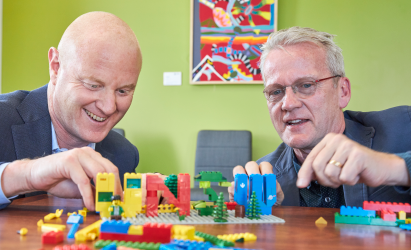
Bringing Fair Play to life
The support of LEGO Education Australia and donors Frances Allan and Ian Narev has been crucial in making the Fair Play research concept a reality. Ian, who is the former Managing Director of the Commonwealth Bank of Australia, says he was inspired by the GIE’s vision of creating greater equity in Australian education.
“The way the Institute is going after that idea of equity in education, as shown by this creative approach to research, is very exciting, very unique. I'm not an education expert, I’m a dad. The idea of saying, ‘Actually, not only do kids get a lot of wellbeing out of playing, there might be clear education benefits,’ was immediately positive,” says Ian.
“The overall theme of equity in education is really important, and something that should concern all of us, no matter what we do or what stage of life we're at.”
Claus Kristensen, Vice-President & General Manager, LEGO Australia & New Zealand, says that the project is a natural fit for the company.
“It was fascinating to learn about the Fair Play project and the ambition to understand the benefits of structured and unstructured play. LEGO play is universally appealing. The combination of a structured system of play materials, and the simultaneous logic and unlimited creativity it encourages, enables children to learn as they play in a way that is wholly unique,” he says.
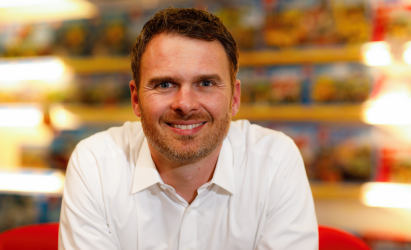
LEGO Australia & New Zealand
“LEGO is simple, accessible, and allows children (and even adults) to build anything they can imagine over and over again, providing endless opportunities for innovative creation. The LEGO Group has always believed in learning through play and that different types of play have different benefits for children’s learning and development … we knew we had the tools to help support the project and discover how learning through play can help to enhance equity of education in Australian schools.”
Fair Play will take place over three years within more than 30 schools. Participating schools will receive LEGO toys and the GIE will provide training and support to enable schools to set up learning environments that promote open play. The research team will collect data through focus groups and interviews and teachers will be trained to observe students in the classroom environment.
The research team hopes that the outcomes of Fair Play will lead to new learning models that include play. First and foremost, they hope that by examining how play contributes to educational equity, they can support policies that help all children succeed in life, regardless of the socioeconomic challenges they face.
Claus agrees that helping children overcome the barriers caused by disadvantage is something we should all prioritise.
“Education provides the cornerstone in each society and helps pave the way for a brighter future,” he says. “Children’s learning and development is essential – they are the builders of tomorrow and we need to continually understand how we support their learning in the best possible way.”
This article originally appeared in the 2019 UNSW Donor Impact Magazine.





